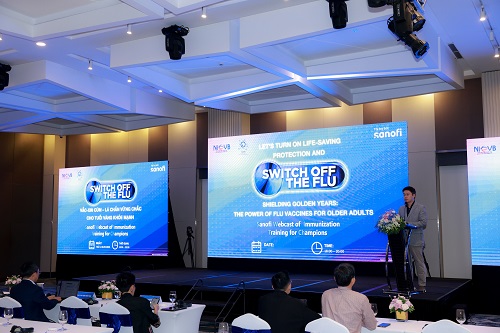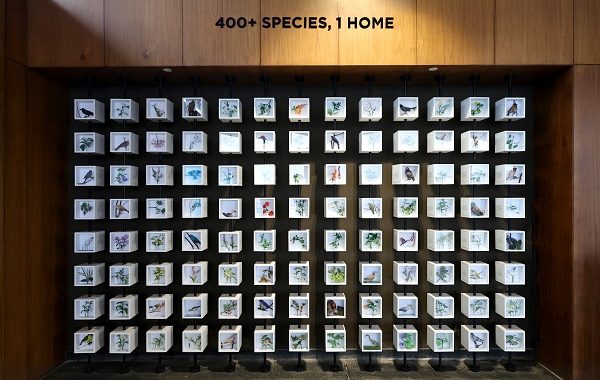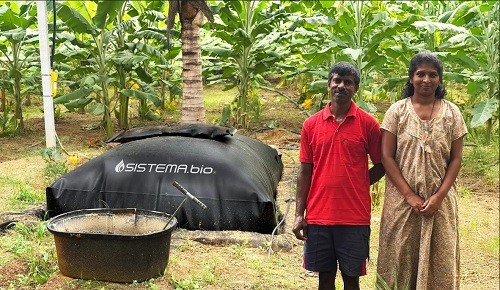Nation Celebrates National Girl Child Day

Various Activities to be Organized Across The Nation to Promote Awareness About The Rights of Girl Child, Their Education, Health and Nutrition
National Girl Child Day is celebrated in the country on January 24 every year with an objective to provide support and opportunities to the girls of India. It aims towards promoting awareness about the rights of the girl child and to increase awareness on the importance of girl education, and their health and nutrition and also to promote the girls position in the society to make their living better among the society. Gender discrimination is a major problem that girls or women face throughout their life. National Girl Child Day was first initiated in 2008 by the Ministry of Women and Child Development.
Objectives of National Girl Child Day
The objective of National Girl Child Day is to create awareness about the rights a girl owns and to give girls the opportunities like everyone else, also to support the girl child of the nation and remove gender-based biases. Another objective of celebrating this day is to promote awareness about the inequalities that a girl child faces and educate people about girl’s education. Basically to value them and to respect them like everybody else and give a new perspective towards girl child and to decrease discrimination. The main focus is on changing society’s attitude towards girls, decrease female feticide and create awareness about the decreasing sex ratio.
Steps Taken by the Government
Government of India has taken several steps over the years to improve the conditions of girls. Government has started several campaigns and programmes some of them are :
- Save the Girl Child,
- Beti Bachao Beti Padhao,
- Sukanya Samriddhi Yojana
- CBSE Udaan Scheme
- Free or subsidized education for girl child,
- Reservation for women in colleges and universities
g. National Scheme of Incentive to Girls for Secondary Education
Background of BBBP
Census 2011 data was a call for urgent action, because it highlighted that the girl child is increasingly being excluded from life itself. The unabated decline in Child Sex Ratio (CSR) since 1961 (from 976 in 1961 to 927 in 2001 and 918 in 2011) was a matter of grave concern as it reflected the low status of women in our society and indicates her disempowerment over a life-cycle continuum. Declining CSR is also indicative of pre-birth discrimination manifested through gender biased sex selection and post birth discrimination against girls (in terms of health care, nutrition and educational opportunities).
| Year | 1961 | 1971 | 1981 | 1991 | 2001 | 2011 |
| Child Sex Ratio | 976 | 964 | 962 | 945 | 927 | 918 |
CSR continued declining in spite of a strong legal and policy framework and various Government initiatives. The sharp decline is associated with an intersection of various factors such as the increasing spread and misuse of technology for prenatal sex selective elimination, changing aspirations of urban and rural societies, changes in family structures and reproductive decision making, favoring a smaller family size. This has accentuated the son preference, associated with the low status of women in society, patriarchal social norms and the disturbing pattern of gender based violence faced by girls and women across the life cycle.
Despite various policy and programmatic provisions, addressing adverse and steeply declining CSR remains a critical challenge. Efforts are needed to ensure survival, protection and education of girl child to help realize her full potential. In this regard, the Hon’ble President of India, in his address to the Joint Session of the Parliament on June 9, 2014 had stated that “With a commitment of “Beti Bachao Beti Padhao”, my government will launch a mass campaign for saving the girl child and enabling her education. Further the Finance Minister in Budget speech 2014-15 also reiterated Government of India’s commitment by setting aside Rs. 100 Cr. Hon’ble Prime Minister expressed deep concern over the decline in CSR in his Independence Day address.
In this background, Beti Bachao Beti Padhao (BBBP) Scheme was launched by the Hon’ble Prime Minister on 22nd January, 2015 in Panipat, Haryana to address the issue of decline in CSR and related issues of empowerment of girls and women over a life cycle continuum.
The Scheme was initially launched in 100 districts in 2014-15 (Phase-1), and was expanded to 61 additional districts in 2015-16 (Phase-2). Following initial success of the scheme, the initiative has been expanded to 640 districts of the Country (as per Census 2011) on 8th March 2018.
The Overall Goal of the Beti Bachao Beti Padhao (BBBP) Scheme is to celebrate the girl child, enable her education.
Objectives and target groups:
The Scheme is being implemented with a goal to celebrate the girl child and enable her education. The objectives of the Scheme are as under:
-
- To prevent gender biased sex selective elimination
- To ensure survival and protection of the girl child
- To ensure education and participation of the girl child
Implementation Status and acheivement:
Scheme has stirred up collective consciousness towards changing the mindset of the public to acknowledge the rights of the girl child. The scheme has resulted in increased awareness and sensitization of the masses. It has raised concerns around the issue of declining CSR in India. As a result of collective consciousness of the people supporting the campaign BBBP has found its place in public discourse.
- Increase in 19 points in Sex Ratio at Birth at National level from 918 (2014-15) to 937 (2020-21). (Source: HMIS data, MoHFW (April-March, 2014-15 & 2020-21)
- Gross Enrolment Ratio (GER): Enrollment of Girls in secondary education increased from 77.45% in 2014-15 to 81.32% in 2018-19. (Source: U-DISE, Mo Education (2018-19 data is provisional)
- Under Five Child Mortality (Female) has reduced from 45 in 2014 to 36 in 2018. (Source: SRS census india.gov.in)
- Percentage of 1st Trimester ANC Registration has shown improvement from 61% in 2014-15 to 73.9% in 2020-21. (Source: HMIS data, MoHFW (April-March, 2014-15 & 2020-21)
- Percentage of Institutional Deliveries has also shown an improvement from 87% in 2014-15 to 94.8% in 2020-21. (Source: HMIS data, MoHFW (April-March, 2014-15 & 2020-21)
NATIONAL GIRL CHILD DAY-2022
In view of COVID 19 situation in the country, it has been decided that all programs should be organised on virtual/ online mode and all kinds of physical interactions should be avoided.
Pradhan Mantri Rashtriya Bal Puraskar-2022
On the occasion of National Girl Child Day on 24th January and as part of Azadi Ka Amrit Mahotsav, a virtual function would be held to recognise the exemplary achievements of children by facilitating PMRBP awardees of 2022. Hon’ble Prime Minister would interact virtually with winners of PMRBP-2022. The children along with their parents and concerned District Magistrate of their respective district would join the event from their district Head Quarters.
During the function, Hon’ble Prime Minister would give digital certificates to winners of PMRBP. The certificates would also be given to winners of PMRBP 2021, who could not be given the certificates last year due to COVID situation. The cash prize of Rs.1,00,000/- to be given to the awardees of PMRBP 2022 would also be transferred to the respective account of winners during the programme.
Webinars to be held on 24.1.2022
The Minister, MoWCD, Smt Smriti Zubin Irani will interact with children from few marginalised identities from across the country in an online event ‘Kanya Mahotsav’- #LadkiyanJahanKhushiyanwahan organised by UNICEF as part of Azadi Ka Amrut Mahotsav. The program will be livestreamed.
The Minister, Ministry of Textile, Commerce and Industries, Consumer Affairs and food & Public Distribution, Shri Piyush Goyal will hold a virtual interactive session with young girls who have made noteworthy innovations in different areas that is pioneering.
The Minister of State, Ministry of Science and Technology, Shri Jitendra Singh will also interact with young women entrepreneurs who have made noteworthy achievements in the fields of science and technology on a virtual platform.
These interactions with the Ministers will act as a catalyst and inspire such other million girls to have conviction in their ideas and to follow their heart on the path towards economic independence.
National Commission of Women is organizing a virtual discussion through which their speakers will contribute to raise awareness about the rights of girls and on the importance of girl education.
NIPCCD will be organising a webinar on “Addressing Comprehensive Needs of Adolescent Girls in India” #Ladkiyanjahankhusiyanwahan. The talking points of the Webinar will be Healthy eating during adolescence · Challenges of Adolescent Girls with reference to Education & Way forward · Need and importance of Psychosocial Development among Adolescent Girls
NCPCR will be holding a webinar on the topic,’ Legislative Rights of the Girl Child’. Hon’ble Justice Shri Kalpesh Satyendra Jhaveri, former Chief Justice of Orissa High Court will be the main speaker for the webinar.
All the States/UTs s and 405 multi – sectoral districts under BBBP to organize online programmes such as Gram Sabha/Mahila Sabha on CSR, programme with schools on value of girl child, Posters/Slogan-writing/ Drawing/ Painting competition among school on STEM related topics, and run stories in local media about BBBP local champions etc.
********
Also See:






